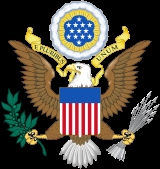|
Eleanor Stem Allen Memorial Speech Contest
Pass the Equal Rights Amendment
Topic of Young Speakers
The Big Bear
Valley American Association of University Women, in association with Bearly
Speaking Toastmasters is sponsoring the 6th Annual Eleanor Stem Allen Memorial
Speech Contest on February 16th at 6:00 P.M. in the Hofert Hall, located in the
Performing Arts Center of Big Bear Lake.
The topic, Is
it time to pass the Equal Rights Amendment?, will be the challenge of the
evening and the public as the audience.
Student
contestants are being sought for the Speech Competition. In addition to the
opportunity to improve speaking skills, both male and female students will vie
for $1,500 in prizes.
The Speech
Contest deadline to enter is February 10th.
Informational
workshops for students covering the basics of how to put together a winning
speech will be announced soon. For more information, contact Marlene Cain at 909-866-2819 / Marcain@earthlink.net
Eleanor Stem Allen Memorial Speech Contest
Deadline - Tuesday February 10th
Thursday
February 16, 2017 * 6:00 P.M.
Performing Arts of Big Bear Lake
39707 Big Bear Boulevard
Big Bear Lake, CA, 92315
|

Equal Rights
Amendment
From
Wikipedia, the free encyclopedia
The Equal
Rights Amendment (ERA) was a proposed amendment
to the United States Constitution designed to
guarantee equal rights for women. The ERA was originally
written by Alice
Paul and Crystal Eastman. In 1923, it was introduced in the Congress for the first time. The ERA has
always been highly controversial regarding the meaning of equality for women.
It was "feminist against feminist", said historian Judith
Sealander; the result was the eventual defeat of the ERA.[1] Middle-class women generally were
supportive. Those speaking for the working class were strongly opposed, arguing
that employed women needed special protections regarding working conditions and
hours. In 1972, it passed both houses of Congress and was submitted to the
state legislatures for ratification. It seemed headed for quick approval until Phyllis
Schlafly mobilized conservative women in opposition, arguing that the ERA
would disadvantage housewives.
Congress
had set a ratification deadline of March 22, 1979. Through 1977, the amendment
received 35 of the necessary 38 state ratifications. Five
states rescinded their ratifications before the 1979 deadline. In 1978, a joint
resolution of Congress extended the ratification deadline to June 30, 1982, but
no further states ratified the amendment and so it did not become part of the
Constitution. Several organizations continue to work for the adoption of the
ERA.
|